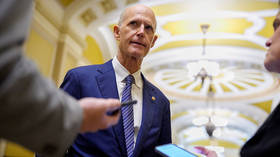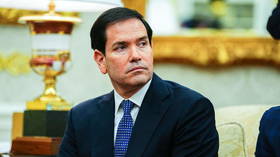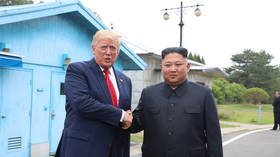Germany in ‘dramatic’ economic decline – leading think tank

Germany’s economic decline is becoming “dramatic” following years of flatlining GDP and failed attempts to reverse the situation, the head of the Munich-based ifo Institute, one of Europe’s leading economic think tanks, has warned.
A new study by the institute shows Germany’s economic output has stagnated since 2018. Government spending on pensions, schools, and infrastructure has jumped by 25% since 2015, and corporate investment in machinery and factories has fallen below 2015 levels.
According to Clemens Fuest, president of the ifo, the bleak state of the economy suggests that Germany is on the verge of “italienische Verhaltnisse” – German for “Italian conditions” – a term used to describe chronic economic weakness, stagnation, and structural inefficiency, long associated with Italy’s economy.
“Germany has been in economic decline for years. The situation has become dramatic,” Fuest told Bild in comments published on Sunday. “Less private investment means less growth, less tax revenue, and thus less money for government services in the medium term.”
The analyst said the downturn is already being felt by “millions” of ordinary Germans through the “decline in their standard of living,” and warned that without swift reform, the country faces a 25-year economic downturn.
Fuest urged the government to draw up a “comprehensive reform plan” within six months, including pension reforms. He also called for red tape to be cut for small and medium-sized companies by scrapping documentation rules on CO2 emissions, supply chains, and minimum wages, saying they add costs without value. Removing them, he argued, could generate up to €146 billion ($170 billion) in added economic gains each year.
Germany’s economy contracted in 2024 after a 0.3% decline in 2023, marking the first back-to-back annual drop since the early 2000s. Rising energy costs – following the loss of access to cheap Russian gas due to Ukraine-related sanctions – have been blamed for much of the downturn. Chancellor Friedrich Merz admitted in August that the economy was in a “structural crisis” with large sectors “no longer truly competitive.”
Both the ifo and the International Monetary Fund project near-zero growth for Germany this year – about 0.2% – with overall economic activity stagnating.












